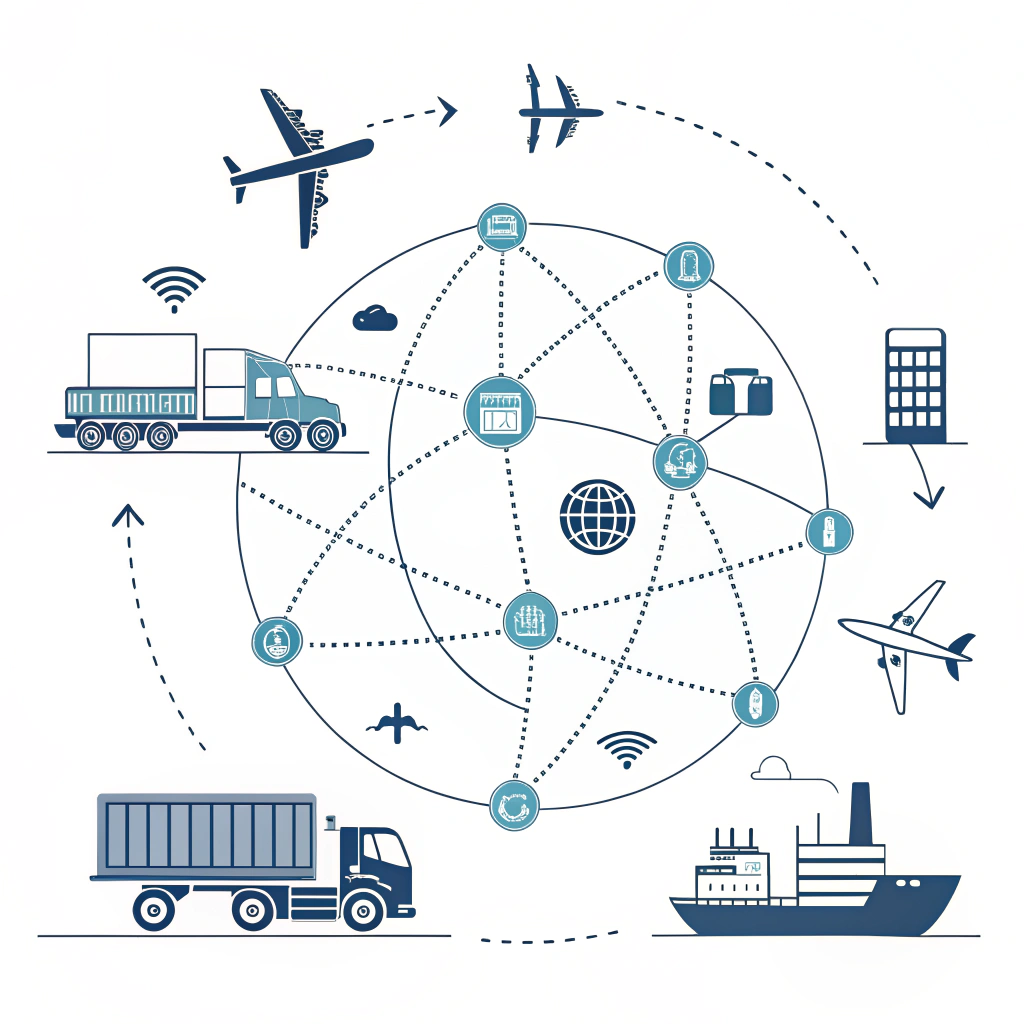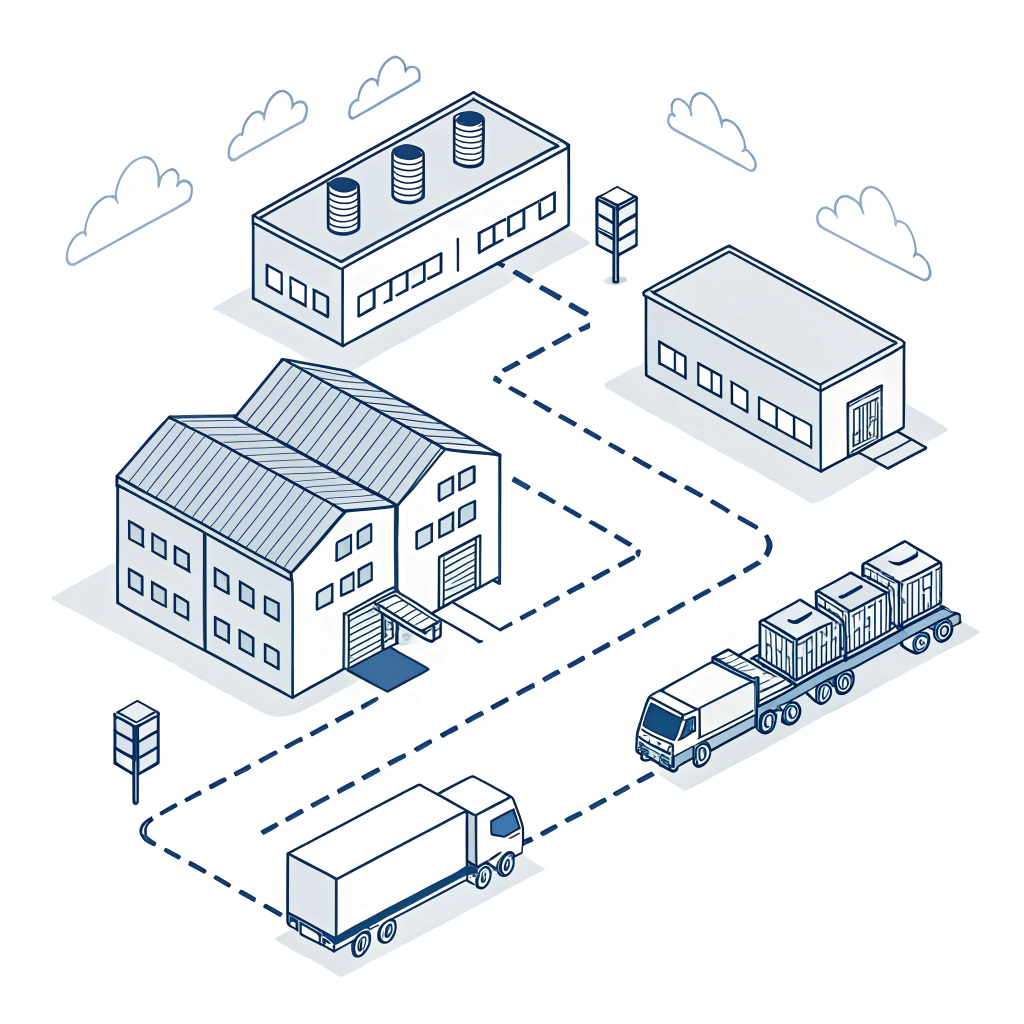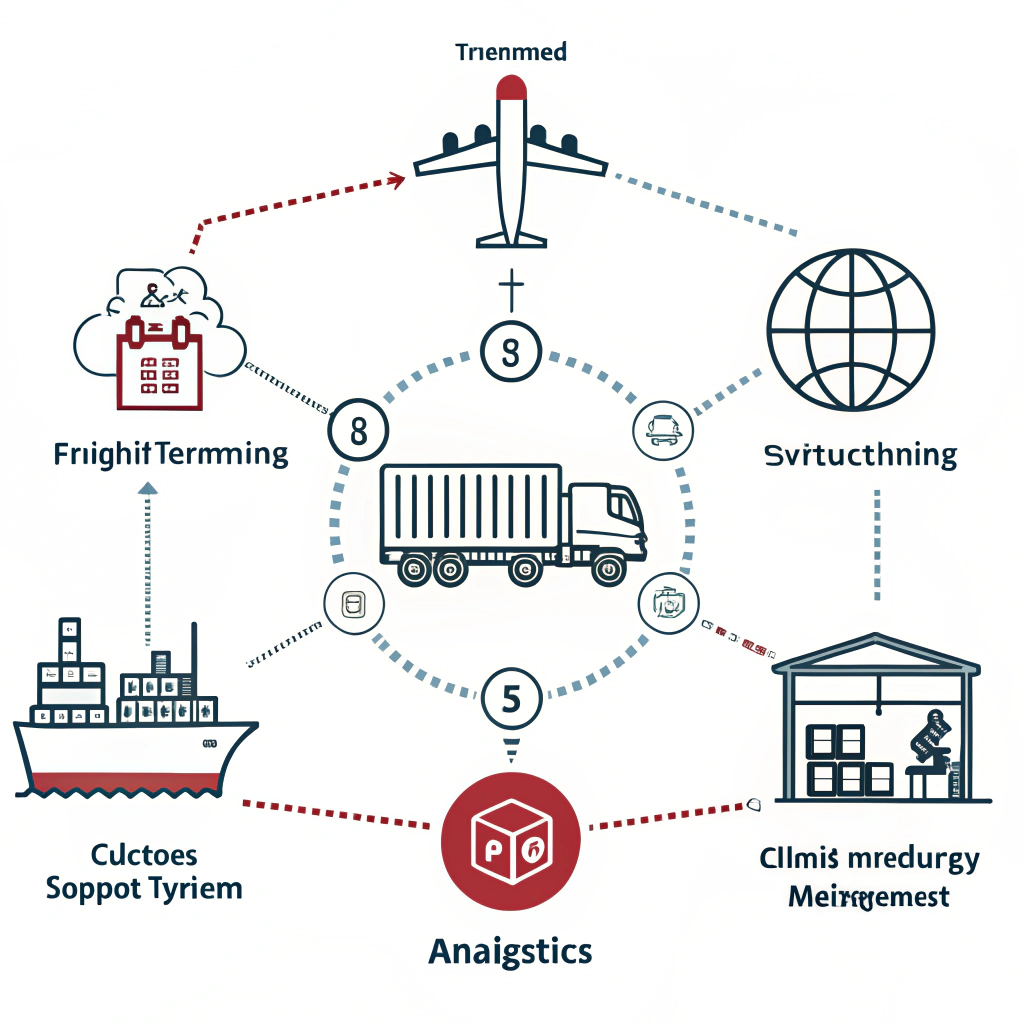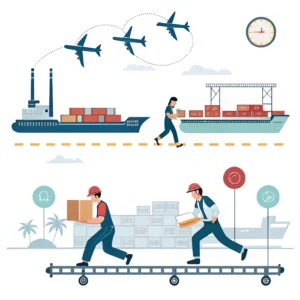Strong logistics support means having a robust, efficient, and integrated supply chain system that directly contributes to operational excellence1. In today’s competitive global market, effective logistics—from air and ocean freight to inland trucking and customs brokerage—is key to reducing delays, cutting costs, and ensuring customer satisfaction.
When companies pursue operational excellence1, they focus on delivering the promised value while continuously streamlining processes. The backbone of this pursuit is a solid logistics support system. This article explains why strong logistics is the linchpin of smooth operations and provides actionable solutions that help B2B decision-makers achieve measurable performance improvements.
Companies that rely on disjointed logistics systems often face several challenges:
- Delayed Shipments: Frequent delivery delays can disrupt production schedules.
- Inadequate Tracking: Without real-time updates, companies struggle to manage and plan their operations effectively.
- Increased Costs: Inefficient routes, customs delays, or poor consolidation strategies add to operational expenses.
- Risk of Non-Compliance: With global trade regulations constantly evolving, companies may encounter compliance issues that can halt operations.
These issues affect supply chain management2 and overall customer satisfaction, leading to higher costs and operational inefficiencies.
Understanding why logistics systems fail or underperform is crucial. Here are key reasons behind logistics challenges:
- Lack of Integration: Many companies use separate systems for air, ocean, and land transport that do not communicate efficiently.
- Insufficient Technology Adoption: Modern supply chains are data-driven. Inadequate tracking systems and outdated IT can hinder operational progress.
- Inefficient Consolidation: When multiple shipments aren’t consolidated properly, companies miss out on economies of scale.
- Regulatory Complexities: Non-standardized customs brokerage services can lead to delays at border crossings and increased administrative burdens.
- Poor Coordination: Without strong coordination among freight forwarders, trucking companies, and warehousing operations, logistical bottlenecks are inevitable.
These factors not only raise operational costs but also risk compromising product quality and customer trust.
- Consolidated Operations: By integrating air freight, ocean shipping, and inland trucking, organizations streamline communications and reduce misunderstanding. This integration promotes faster decision-making and improves responsiveness.
- Technology Adoption: Embrace digital platforms that allow for real-time tracking and data sharing. Implementing a centralized system for freight forwarding3 can improve visibility across the supply chain.
- Partnership with Experienced Providers: Working with established logistics providers, such as Shenzhen King-Hor Supply Chain Co.,Ltd, ensures access to professional expertise in complex markets.
- Shipping Consolidation: Combining multiple shipments from various suppliers into one container or truckload can reduce shipping costs and minimize environmental impact.
- Tailored Services: Customization of consolidation strategies based on product type, delivery timeline, and destination results in more efficient processes.
- Case in Point: Manufacturers that utilize consolidation services typically see a reduction in transportation costs by up to 20%, while also cutting down on the number of transit points.
- Efficient Border Processes: Robust customs brokerage4 services ensure smoother border crossings and reduce the risk of non-compliance.
- Regulatory Updates: Staying current with trade laws and tariff changes prevents unforeseen delays.
- Value-Added Services: Many logistics providers offer additional services, such as pre-clearance and documentation management, further accelerating the customs process.
- Optimized Storage Solutions: Utilizing strategically located warehouses—both domestically and internationally—facilitates faster deliveries and better inventory management.
- Inland Trucking Coordination: Fast, reliable inland trucking services ensure timely deliveries from warehouse to the final destination.
- Merge-in-Transit Services: Combining orders in transit can lead to fewer shipments, reduced costs, and a more sustainable supply chain.
5. Enhanced Transparency Through data analytics5
- Performance Metrics: Tracking key performance indicators (KPIs) such as on-time delivery rates, inventory turnover, and order accuracy helps identify bottlenecks.
- Continuous Improvement: Data-driven insights allow companies to continually refine their logistics processes, adapting to market changes and optimizing resources.
- Real-Time Insights: Modern dashboards and analytics tools provide instant reports that enable swift corrective actions.
Below is a comparative table summarizing essential logistics support components and their impact on operational excellence:
| Component | Key Benefits | Potential Challenges | Best Practices |
|---|---|---|---|
| Integrated Freight Forwarding | Improved coordination, cost efficiency | System integration complexity | Use centralized IT systems, engage experienced partners |
| Shipping Consolidation | Reduced transportation costs, sustainability | Over-reliance on a single mode | Diversify transport options, analyze shipment volumes |
| Customs Brokerage | Faster clearance, compliance assurance | Regulatory uncertainty | Partner with experts, stay updated on trade policies |
| Warehousing & Distribution | Optimized inventory, improved delivery speed | Location and capacity limitations | Strategic warehouse placement, real-time inventory management |
| Data Analytics | Enhanced transparency, continuous improvement | Data accuracy and security | Invest in advanced tracking systems, regular audits |
For companies looking to adopt robust logistics support systems, consider these practical guidelines:
- Assess Current Operations: Conduct thorough internal audits of your current supply chain processes. Identify bottlenecks and areas with inefficient coordination.
- Collaborate with Experts: Engage with logistics professionals and freight forwarding service providers who have a proven record in achieving operational excellence1. Their hands-on experience across air, ocean, and inland shipping can offer fresh perspectives.
- Adopt Scalable Technologies: Ensure that any technology integration—such as transport management systems (TMS) or warehouse management systems (WMS)—is scalable. This flexibility allows your operations to grow without constant overhauls.
- Monitor Regulatory Changes: In the dynamic world of global trade, regulations are subject to frequent updates. Use dedicated customs brokerage services and trade compliance experts to avoid non-compliance risks.
- Leverage Data for Decision-Making: Establish clear KPIs and invest in tools that give you real-time insights into your operations. Data analytics5 not only help in troubleshooting but also in making proactive, informed decisions.
Consider a mid-sized manufacturing firm operating in North America that struggled with delivery delays and rising operational costs. By partnering with an experienced logistics support provider, the company was able to:
- Integrate their freight forwarding: Merging air, ocean, and land logistics into a single operational framework.
- Consolidate shipments: Optimizing container usage and shipping routes led to a 15% reduction in transportation costs.
- Streamline customs processes: With dedicated customs brokerage, the company reduced clearance delays by 30%.
- Utilize data analytics: Real-time performance tracking helped identify underperforming segments, leading to targeted improvements in warehouse distribution and inland trucking schedules.
The transformation not only improved the company’s cost efficiency but also enhanced customer satisfaction, proving that strong logistics support is instrumental in driving operational excellence.
In summary, strong logistics support is far more than just a backend function—it is a strategic element that drives operational excellence and competitive differentiation in today’s global economy. By addressing challenges in freight forwarding, customs brokerage, warehousing, and data analytics5, companies can streamline their operations, reduce costs, and secure a robust market position.
To summarize:
- Evaluate current logistics operations and identify integration gaps.
- Leverage technology to gain real-time visibility and enhance decision-making.
- Build partnerships with reliable, experienced logistics providers.
- Focus on consolidation, both in shipment and data processing, to achieve economies of scale.
- Regularly monitor performance metrics to drive continuous improvement.
By following these action steps, B2B operations directors and supply chain managers can not only optimize their logistics support systems but also achieve significant cost savings and operational efficiency that directly contribute to overall business success.
Q1: How do logistics support systems improve operational excellence?
A1: Logistics support systems improve operational excellence by integrating various supply chain components, ensuring faster delivery times, reducing costs through shipment consolidation, and providing real-time data analytics for continuous process improvement.
Q2: What role does customs brokerage play in efficient logistics?
A2: Customs brokerage plays a vital role in efficient logistics by streamlining border clearance processes, ensuring compliance with trade regulations, and reducing delays that can hinder overall supply chain performance.
Q3: How can integrated freight forwarding contribute to cost reduction in supply chain management?
A3: Integrated freight forwarding contributes to cost reduction by coordinating air, ocean, and inland transport, which minimizes communication gaps, optimizes shipment routes, and consolidates multiple shipments to reduce transportation expenses.
-
operational excellence: Click here to explore detailed strategies for achieving top-tier performance in business processes, optimizing operations, and realizing competitive advantages. ↩ ↩2 ↩3
-
supply chain management: Click here to understand the principles of supply chain integration, risk mitigation, and how effective management can enhance efficiency and customer satisfaction. ↩
-
freight forwarding: Click here to learn about the logistics involved in freight forwarding, including its role in consolidating shipments, reducing costs, and streamlining international transport. ↩
-
customs brokerage: Click here for insights into customs brokerage, explaining how professional services help navigate trade regulations, accelerate border clearance, and ensure compliance. ↩
-
data analytics: Click here to discover how data analytics transforms supply chain management by providing real-time insights, driving continuous improvement, and enabling data-driven decision-making. ↩ ↩2 ↩3












